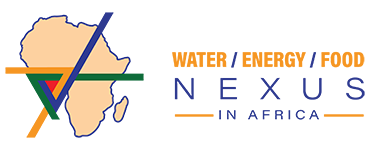The University of Ghana in partnership with the Danish Institute for International Studies (DIIS)
is pleased to announce the availability of full funding to pursue a PhD programme for a four-year
period, beginning from February 2022.
This PhD position is part of a comparative research project on the political economy of renewable
energy in Africa, with a focus on Ghana and Tanzania. The overall aim of the project is to contribute to a better understanding of how a transition to renewable energy can occur in sub-Saharan Africa. Many countries have set targets for solar and wind, but implementation has been slow and uneven. Consequently, there remain significant gaps between targets and actual implementation of policies relating to renewable energy in developing countries. Much of existing literature focuses on how technical innovation in renewable energy can drive a transition of energy systems. Despite the increasing recognition of the centrality of politics and power relations in shaping the prioritization of energy projects, little is known of the political and political economy factors that shape the design and implementation of renewable energy projects in Africa.
The project aims to develop a conceptual framework for the study of the political economy of
energy that can help explain how different energy types/sources (e.g. renewable, fossil fuel, solar,
gas etc.) are prioritized in different countries. Specifically, the project’s key research questions
are as follows:
- What are the most important state organizations in Ghana’s energy sectors, and how have they developed their capacity since liberalization?
- What is the capacity of state organizations when planning energy systems and projects, and what are the implications for the prioritization of different energy technologies?
- What are the dominant policy coalitions in the Ghanaian energy sector, and what are the interests, ideas and relative power of their constituting organizations vis-à-vis those excluded in relation to the prioritization of energy technologies and projects?
- How have different policy coalitions promoted or impeded access to new renewable energy in Ghana?
- How have political economy dynamics shaped access to energy services among the poor?
Eligible criteria:
Applicants must be Ghanaian citizens who meet the following criteria
- Hold a good masters degree in the social sciences, preferably in Public Administration, Political Science, and Development Studies.
- Be highly motivated to develop a scientific career, and to pursue doctoral studies according to the approved study plan.
- Possess and demonstrate good research and writing skills.
- Have a strong methodological and conceptual background in the relevant scientific disciplines or areas.
- Ideally have experience in conducting elite interviews.
- Ideally have good understanding of Ghana’s political context and how it shapes elite incentives and behavior.
- Ideally, have at least one publication in a good journal as sole/lead author.
- Ideally, demonstrated ability to plan and undertake quality research, including experience in conducting qualitative interviews in Ghana.
Female candidates are especially encouraged to apply to take advantage of the funding opportunity
available.
Application Process:
Potential applicants are invited to prepare a 4-5-page concept note (maximum 2,000 words) which, outlines a detailed focus for the proposed PhD project as well as research assumptions and questions. The concept note should include the title of the study; problem statement and/or research question; theoretical approach, proposed research methodology, and a study plan.
In addition to the concept note, the application should be accompanied by:
- Detailed CV and two letters of academic reference
- Official transcripts and certificates for undergrad and masters degrees
- Sample of publication or any other written material (not more than 7,000 words) of which the candidate is either the sole or lead author.
The application should be submitted by email to Prof. Abdul-Gafaru Abdulai (agabdulai@ug.edu.gh) and copied to Rasmus Hundsbæk Pedersen (rhp@diis.dk). Both AbdulGafaru and Rasmus can be contacted for more information on the renewable energy project. Candidates will be screened against a set of criteria and only those shortlisted will be invited to an online interview.
The assessment committee will consist of a panel of researchers from the UGBS and partner institutions in the Energy Struggles research project. The partners in the research project are the Danish Institute for International Studies (DIIS), Kwame Nkrumah University of Science and Technology (KNUST), UNEP DTU Partnership, the University of Ghana (UG), and Science, Technology and Innovation Policy Research Organization (STIPRO) in Tanzania.
Deadline for submitting applications is 5pm on 20 December 2021.
